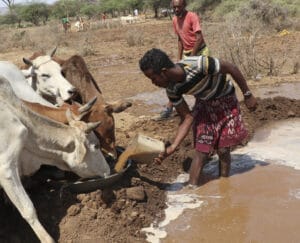Social Promotion Foundation joins the celebration of World Water Day.
The right to access to safe drinking water is the threshold of all other rights.
It is necessary to raise awareness about the global water crisis and the need in order to make possible water and sanitation for all (SDG 6) by 2030.
In the countries where we implement our AECID-funded agreements, Ethiopia and Palestine, water is a very scarce commodity, a source of conflict, despite the fact that agriculture is a crucial sector for the livelihoods of millions of families.
Lack of fertile land and scarcity of water for irrigation remain a major constraint that farmers face, significantly undermining their livelihoods and leaving many families without access to decent work.
In the framework of the agreement the Foundation’s implements in Palestine, the right holders see an increase in the availability of natural resources, land and water.
In order to improve the efficient management of water resources, rainwater harvesting cisterns are adapted, springs and pools are rehabilitated, and drip irrigation systems, based on efficiency, are installed and rehabilitated.
Rania, from Nablus in the West Bank (Palestine), tells us about their need for a well as they were not connected to a water supply network. This testimony was sent to us by our local partner RWDS.
“The well is vital because it gives us water for planting crops, drinking and other daily uses. If there was no well, we wouldn’t be able to plant crops, especially in summer.” (Rania Aref, right holder of the Social Promotion Foundation in Palestine).
Rania and all her neighbours had to buy large quantities of water before they had the well, which was built as part of the agreement.
Rania’s statement sums it all up: “Water is life.”
In Ethiopia, we are working to contribute to poverty reduction in 5 Woredas in the Fafan Zone in the Somali Region.

Within the framework of the agreement, interventions are carried out such as topographical studies, drilling of wells that allow access to water for rural communities.
The installation of pumping systems for a water source allows the creation of water troughs, washing places and irrigation systems, and allows women and girls to save 6 hours walking a day in search of water, which will allow the whole community to have more time available for other tasks that will increase their income.





